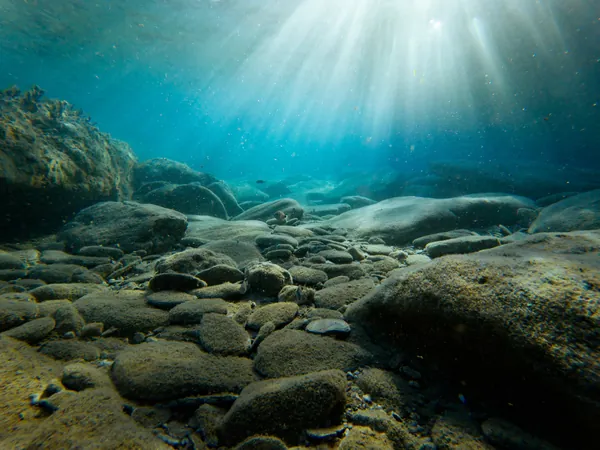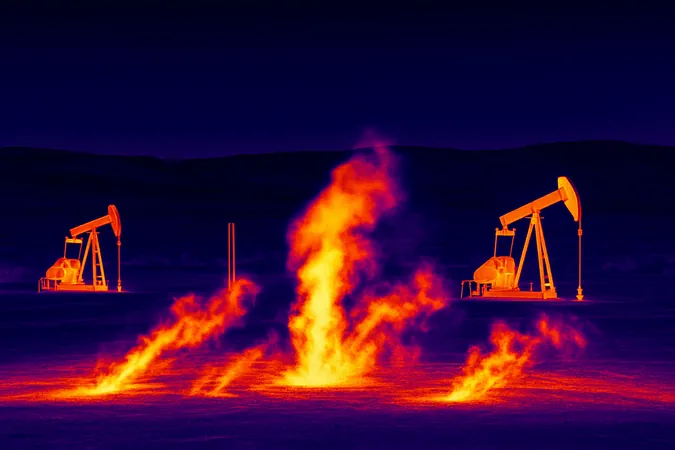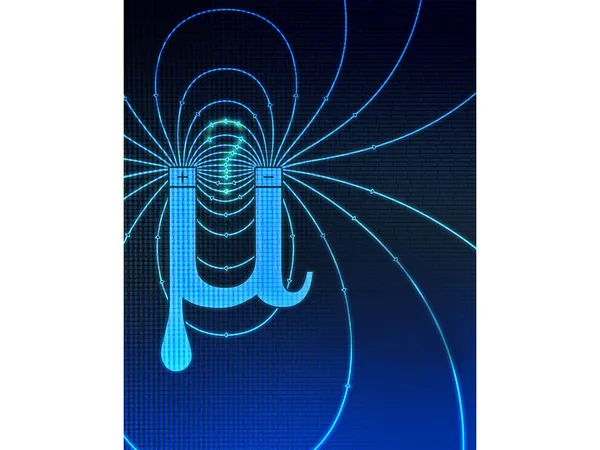
Shocking Discovery: How Disturbances in the Baltic Sea Are Turning Carbon Sinks into CO₂ Sources!
2025-04-24
Author: Jacob
Seafloor Sediments: Nature's Hidden Carbon Regulators
In a stunning revelation, recent research has uncovered that disturbances to seafloor sediments are not just affecting marine ecosystems but are also dramatically influencing our climate. Activities like bottom trawling, along with natural events such as storms and tides, are resurrecting massive amounts of carbon dioxide (CO₂) from beneath the waves into the atmosphere.
The Pyrite Paradox: A New Source of CO₂?
A groundbreaking study published in *Communications Earth & Environment* highlights a crucial oxidation process of pyrite—an iron-rich mineral found in seabed sediments. This newly discovered effect plays a more significant role in CO₂ emissions than previously recognized, overshadowing the oxidation of organic carbon. Lead researcher Habeeb Thanveer Kalapurakkal from the Benthic Biogeochemistry team at GEOMAR stated, "While we already knew sediment resuspension was causing CO₂ release, it was assumed this was mainly due to organic carbon oxidation." The study flips this narrative, revealing that pyrite oxidation is the main contributor.
Inside Kiel Bight: The Carbon Sink Under Siege
The research zeroed in on Kiel Bight, a coastal gem nestled between Germany's Fehmarn Island and the Danish isles. This diverse marine region harbors both coarse sandy and nutrient-rich muddy sediments, essential to the Baltic Sea's carbon cycle. Unfortunately, it's feeling the dual brunt of nature's fury and human activities.
Sediment Resuspension: A Laboratory Simulation of Impact
To measure the impact of sediment disturbance, scientists conducted detailed slurry incubations, collecting samples from varied sediment types. By recreating both oxygen-rich and low-oxygen environments in lab conditions, they meticulously tracked chemical changes—monitoring CO₂ levels, pH, sulfate, and nutrient concentrations.
Results That Could Change Climate Models!
The data revealed a shocking truth: sediment resuspension leads to a staggering increase in CO₂ emissions, primarily due to pyrite oxidation. Disturbing these sediments exposes pyrite to oxygen, resulting in acid production that transforms harmless bicarbonate into greenhouse gas CO₂. This reaction isn't merely local; substantial amounts of CO₂ generated from pyrite oxidation drift into the atmosphere.
A Grim Future for Carbon Sinks
The findings suggest that this disturbance could drastically diminish Kiel Bight's ability to absorb CO₂. Kalapurakkal warns, "Kiel Bight, like many areas in the Baltic Sea, serves as a vital carbon sink. Yet, practices like bottom trawling are severely undermining its capacity by fostering pyrite oxidation and promoting ocean acidification." The balance of our climate may depend on preserving these fragile underwater ecosystems.









 Brasil (PT)
Brasil (PT)
 Canada (EN)
Canada (EN)
 Chile (ES)
Chile (ES)
 Česko (CS)
Česko (CS)
 대한민국 (KO)
대한민국 (KO)
 España (ES)
España (ES)
 France (FR)
France (FR)
 Hong Kong (EN)
Hong Kong (EN)
 Italia (IT)
Italia (IT)
 日本 (JA)
日本 (JA)
 Magyarország (HU)
Magyarország (HU)
 Norge (NO)
Norge (NO)
 Polska (PL)
Polska (PL)
 Schweiz (DE)
Schweiz (DE)
 Singapore (EN)
Singapore (EN)
 Sverige (SV)
Sverige (SV)
 Suomi (FI)
Suomi (FI)
 Türkiye (TR)
Türkiye (TR)
 الإمارات العربية المتحدة (AR)
الإمارات العربية المتحدة (AR)